Pressure builds in the Hauraki Gulf
The debate surrounding the Hauraki Gulf reaches an important moment this week with the first ever One Ocean Protest taking place on Saturday. The event is expected to gather a wide mix of recreational fishers, boaties, divers, paddlers and small scale commercial fishers who share one message: the rules must be fair and the Gulf deserves better protection.
Anyone wanting to take part, watch from shore or simply stay informed can find the details on the One Ocean Protest Facebook page.
One Ocean Protest: recreational fishers rally to defend fair access in the Hauraki Gulf


This protest reflects growing frustration around bottom contact fishing methods, proposed exemptions in new Gulf legislation and the long term decline of local fish stocks. The push is no longer coming from one group. It is coming from the wider coastal community.
LegaSea: pro fishers, pro community, anti destructive methods
LegaSea has reinforced its position in recent days. They are not anti commercial. They are anti destructive, anti overfishing, anti mass harvest, and anti a system that advantages quota owners over the people who actually fish.
Most inshore commercial fishers lease quota at prices that leave them with slim or no profit. They pay before leaving the dock. They shoulder rising fuel, wages and compliance costs. They often carry all the risk while corporate quota holders collect stable income in the background.
FNZ proposes continued exemption for returning spiny dogfish at sea
LegaSea argues this imbalance harms both the fishery and the people working within it.
The bycatch issue: a design flaw, not a mistake
Bycatch and discards have become flashpoints this year, especially around the Gulf. LegaSea says the problem is not careless skippers. It is the unavoidable result of mass harvest methods like trawling, seining and dredging.
These methods do not select their catch. They take juveniles, non target species and vulnerable species in the same sweep. Under the QMS, landing bycatch costs money. Discarding it means survival. The incentive is broken because the underlying system is broken.
Why the first One Ocean Protest matters
Saturday’s protest is significant because it shows the public wants the Gulf managed for recovery rather than convenience. Organisers say the aim is simple: stop the exemptions, stop the loopholes, and treat recreational and commercial fishers fairly.
It is a chance for everyday New Zealanders to show the strength of their concern, not as political activists but as people who love the Gulf and want its recovery to be real.
Ollie Craig: the real divide is not between fishers
Ollie Craig from Primal Pursuit captured the sentiment neatly. The real divide is not recreational versus commercial. It is a system that has encouraged conflict while eroding trust and degrading the fishery.
Most small scale commercial operators want the same outcome recreational fishers want: more fish, healthy ecosystems, clear rules, and a future that does not depend on loopholes.
The path ahead
The momentum behind the Gulf’s recovery is rising. LegaSea is continuing to advocate for its Rescue Fish framework, which would end destructive methods, prioritise local seafood access and repurchase quota from corporate holders.
The public conversation is shifting from concern to action. Saturday’s protest is a sign of that shift.
For those who want to participate or show support, details for the first One Ocean Protest are available on the One Ocean Protest Facebook page.








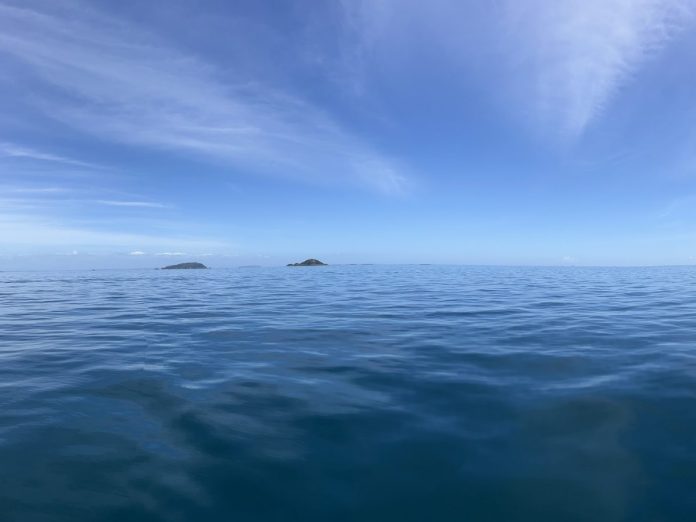





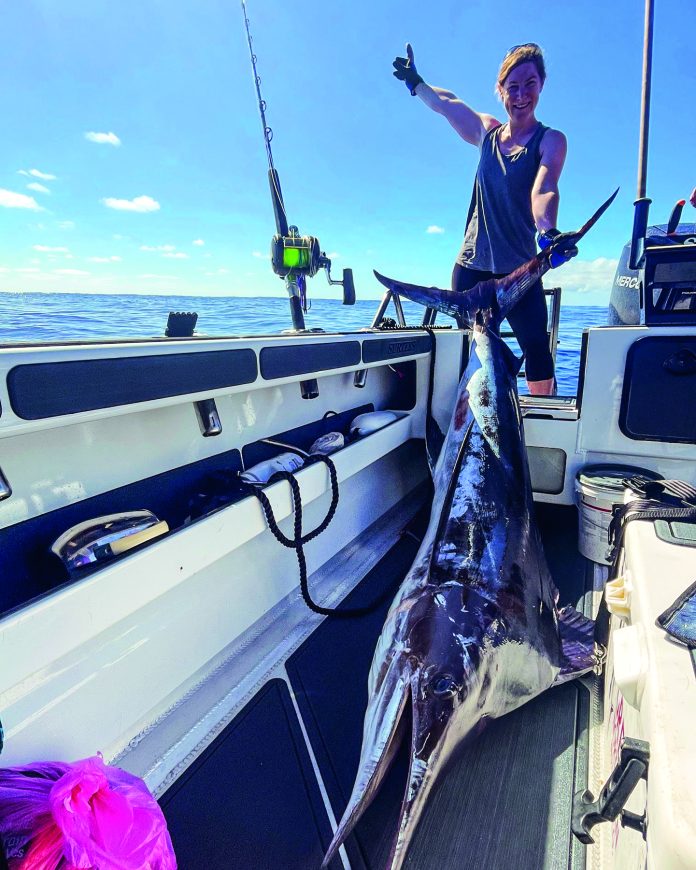
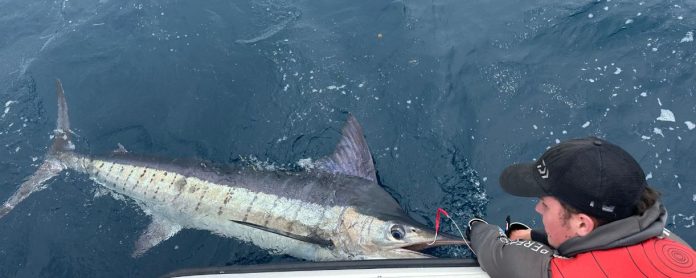
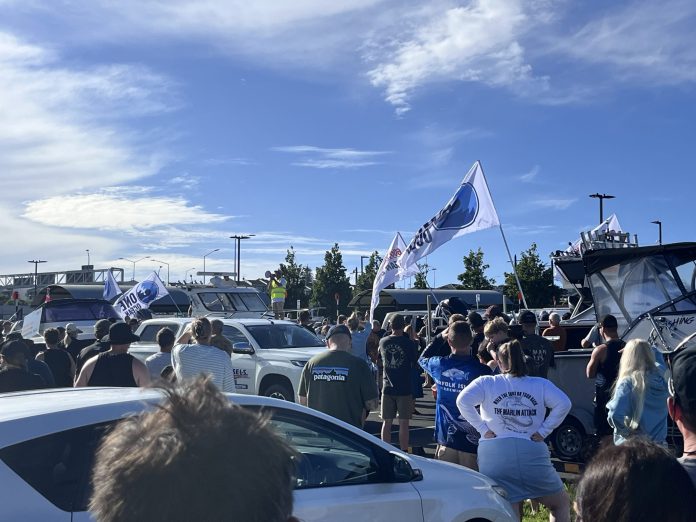
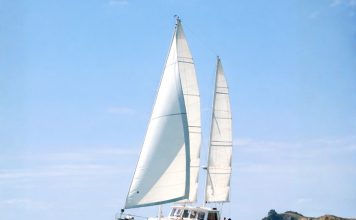
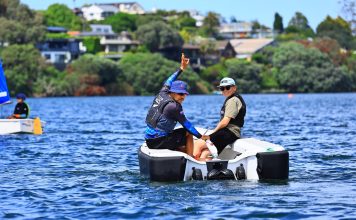
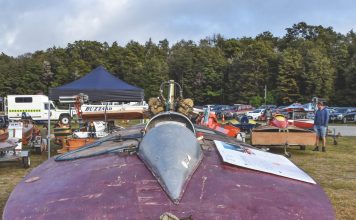
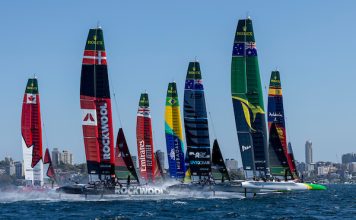
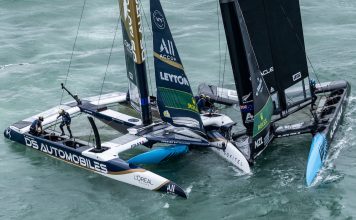
I have been disgusted for years at the mis-management of the gulf fishing resource; especially allowing bottom dredging.
Example we now have few scallops that will take years to recover even with the bans in place. With GPS and bottom dredging, no part of the sea floor is missed.
I am totaly opposed to exemptions, we must all pay the price and make the changes we need.
John
I can not agree with you more John. I am now 86 years old and started snorkeling when i was 14 years old. Most of the coastal areas i snorkeled offered an abundance of crays, scallops, mussels, and a large variety of all types of kelp fish including many very large snapper. My love for the sea and the wonderful things it offered by way of food and the sea life led me into aqualung diving witch allowed me to venture into deeper water and stay for a longer time exploring. The sea bed then had not been disturbed in most of the gulf area and it was very common to see large areas of sea grass covering the sea floor in which lived thousands of scallops from 4 to 5 inches across. In the mid 19-80ts there was one particular area of the coast of Little Barrier i dived on and off over the years. The sea floor was like a mowed lawn of sea grass as far as you could see, covered with very large selection of scallops both large and small. Scattered among them was the odd home of small octopus about 2 ft across You could find them easily because the holes they lived in were surrounded with a mixed up verity of empty sea shells. Quite often i would encourage one to come out of its lair and i would play with it among all the black ink it ejected. I went back to the same spot in the mid 19-90 and was totally horrified. The commercial dredges had found the spot and the seabed had been turned into an area of total destruction with broken shell all over the place, very little sea grass no scallops and no octopus In my latter years of diving i have seen this over and over again, the total destruction of the seabed in dredged areas. This coupled with over fishing for snapper and crayfish have allowed sea eggs to take over and demolish kelp beds in the coastal areas all around the gulf. When is destructive bottom dredging and large commercial fishing going to stop, especially in the gulf area. We should only allow targeted fishing (ie hooks) to take place in our inshore fisheries and allow small controlled long line fishing operators to work the gulf’. I remember years ago diving at Goat Island when it was being over-fished by divers with spear guns. Most of the reef fish had disappeared and the kelp beds were almost destroyed by sea eggs. Since becoming a marine reserve all the reef fish together with the sea bed have reestablish itself. Why can we not carry this out in the gulf and heavily targeted coastal areas in a controlled way and make these sea areas healthy again. The large commercial operators have plenty of open water to fish in instead of our inshore areas. We need to think hard about what is happening to our coastal areas before it is to late. My lifetime associated with the sea has shown me that a rapid decline is taking place in recent years. It is never to late.